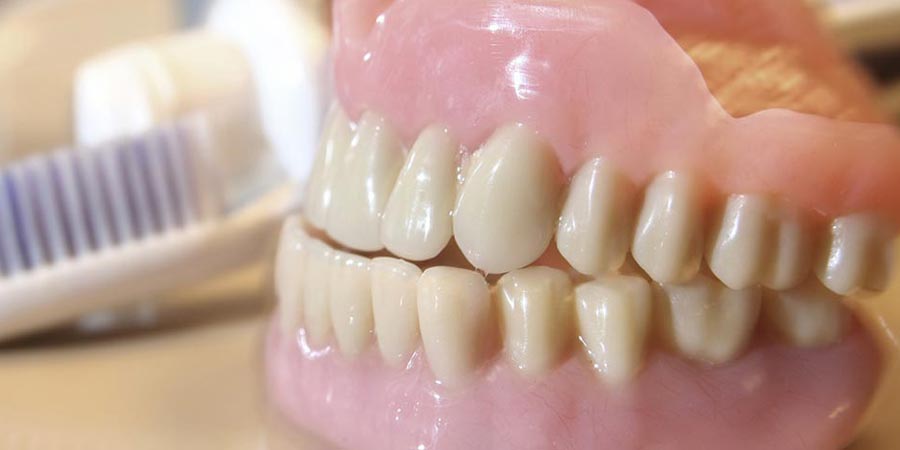There are many reasons why your dentist might recommend dentures. Your teeth might be damaged, or poor oral hygiene may cause them to be in poor condition. Whatever the reason, if they are not fit for purpose anymore, options are available.
Dentures replace your missing teeth, look like the perfect set of teeth, and function as your natural ones would. They may not feel like natural teeth, but they are a convenient replacement, given that you can remove them to clean. You couldn’t do that with your natural ones!
Dentures are an acrylic gum-coloured base that sits on top of your gums. The top denture covers the roof of your mouth, while the lower portion has a unique shape to accommodate your tongue.
Depending on your situation, you may require a conventional denture, an immediate one, or a partial one. Read on to find out which option could be right for you.
Conventional Dentures
Conventional dentures are a full set for both the bottom and top of your mouth. Your dentist removes your remaining natural teeth and then waits for the tissue to heal before fitting you with the dentures. Even though you might be without teeth for several months, this is often the best method.
Immediate Dentures
Immediate dentures are in place as soon as your dentist removes your natural teeth. They would have measured your jaw and prepared a custom fit set before your denture appointment. The standout benefit of immediate dentures is that you can enjoy food right away. You could be without your favourite snacks for a long time while you wait for your teeth to heal for conventional dentures.
The only downside is that they can come loose after several months as the bone shrinks away. You must then see your dentist so they can re-fit them.
Partial Dentures
If you are missing a few teeth, but the rest of your pearly whites are okay, then partial dentures might be the best type for you. Metal or plastic framework make up the base of partial dentures which adhere to your natural teeth. Unlike bridges, partial dentures are removable.
How to Care for Dentures
Once you get dentures, you have to learn a whole new type of oral care. The most important rule of denture care is not to let your dentures dry out. Keep them in a cleansing solution or a glass of water whenever they are not in your mouth. They can also warp if you put them in hot water.
Remember to brush them daily as you would your natural teeth. However, with dentures, you remove them and use a paste that you wouldn’t put in your mouth. Use a soft-bristled brush to remove food and plaque. If your dentures are loose, painful, or damaged, make an appointment with your dentist.
Dentures are suitable for anyone with damaged and irreparable teeth. Talk to your dentist about whether partial or full dentures are right for you.

